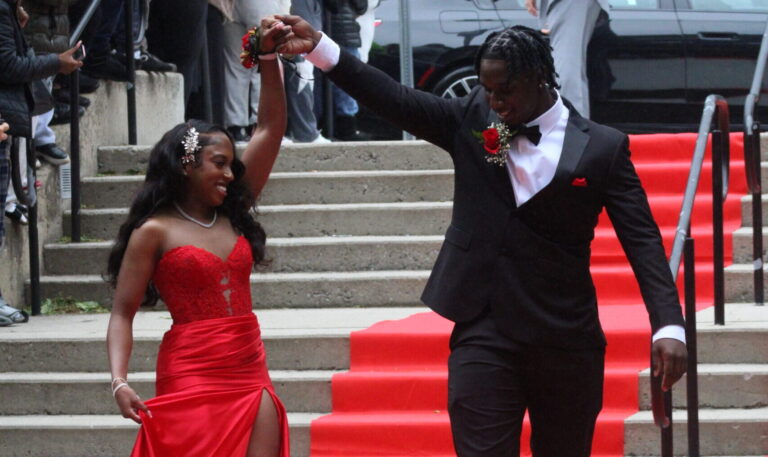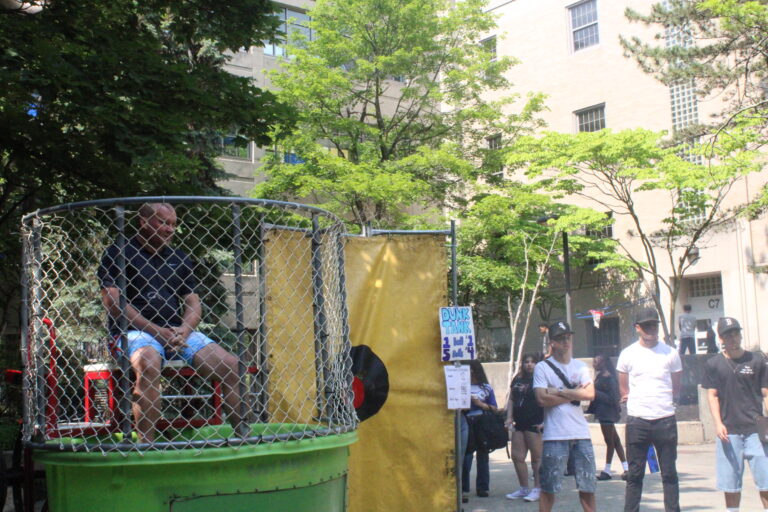Sadly, there are people who are bad at their jobs. The average American may encounter a doctor losing a patient, a lawyer throwing a case, or a Dunkin’ Donuts employee forgetting to add cream and sugar. This average American is entitled to his anger – after all, he lost his friend, or his land, or his luscious dosage of caramel swirl in his morning coffee.
The difference of the latter, though, is this: at best, a lack of caramel swirl will only cause mild and fleeting disappointment. The former two damage lives, break marriages and separate families.
Let’s take this to the next level. If the president overreacted and declared war on Russia, would we excuse him for the reason that he has the most stressful job in the world? No. He would be torn apart — because he has a responsibility to look after his people, not shy away from blame whenever he is accused of wrongdoing. This goes out to the police, too. Respect does not supersede accountability. As officers of the law and leaders in our community, the police should be held to the same standard of behavior that we are, if not a higher one. I trust that police officers who believe in their work will not find this a difficult expectation, either.
Human beings have always struggled to decide whether one can be excused for a crime based on the positive work they do. But the American justice system is designed to be such that people are equal under the eyes of the law — everyone is accountable for their mistakes. So why, as a society, do we always struggle to even consider standing beside people of color?
You may not agree that Darren Wilson or Daniel Pantaleo committed a crime, and that is fine. But there is a live stream of similar cases happening each day and cabinets full of others locked in our past as well. What I want to discuss is why people are bringing race into this discussion – and to put into perspective why the conversation is becoming so controversial and vital to the people of Ferguson and beyond.
In 2004, a young woman named Victoria Snelgrove was struck in the head with a pepper spray projectile launched by police forces in Boston following the Red Sox’s World Series win as she passed through a riot in the streets. Eight other people were arrested and sixteen were injured in this craze, but none of this mattered: the tragedy hit Boston hard. After all, this woman, a 21-year-old journalism major from Emerson College, lost her life in an inevitable riot. She was also white.
Over ten years later, I watched CNN’s coverage of the riots following the decision not to indict Darren Wilson. A panicked black woman is screaming and shouting in the background, and the reporter asks what she is angry about. The only online source I can find of the incident is on crooksandliars.com (I can only attest to the accuracy of this quote) and the transcript of the exchange reads: “I’m upset that this girl just had a heart attack down here, five, six people carrying her body and they tear gassed the girl! They throw gas on the girl, on top of her body, she’s passed out! And they started throwing tear gas at the crowd. We’re tired of this.”
I cannot find any more information on this woman. She could be dead. She could be alive and well. She could be hospitalized. She could also not exist. It doesn’t matter – why can’t any credible source be bothered to find out? Does she not deserve to be followed up on?
We react differently towards different instances of disorder, too. The night I was watching the riots on CNN, I felt like I was watching something different from what the reporters were telling me. They were desperately running around, searching for misconduct, focusing in on the few actual crimes that took place and lingering on those, and remarking about how disappointing the disorder was and how it violated Brown’s family’s wishes.
I will not overlook the crimes that did occur that night – the instances of violence and store break-ins are facts, of course – but take a moment to consider what they were there to cover and what they chose to focus on. They spent little to no time giving context about the case, explaining why there were protests, or making any effort to balance their critical remarks with the facts of the case. Instead, they swarmed to the most action-packed vicinities, pointed out every burning trash can, and lingered the camera frame on every moment of violence. It is almost as if the media wanted there to be chaos – that’s what makes a headlining story, after all – and they had all the right shots to make it one.
I hear the argument that many of the people rioting are taking advantage of the chaos, and sure, this is probably true. But that’s not why the riots are happening. The people of Ferguson are angry, and if their allegations are correct, they are being outright abused and silenced. Historically, when people are vehement and sick of being treated poorly, they riot. Do I support that sentiment? No, I do not think violence is the answer. But I am not a black resident in a city run primarily by white officials, and I cannot say whether this is an issue worth fighting and rioting over. For that reason, calling the violence a “disgrace” discredits the racial tensions and ongoing problems – which we do not fully understand – and replaces it with our disapproval of civil disobedience and perpetuates a false negative view of the people of Ferguson and black people as a race.
We gasp and bemoan about what happens in Ferguson now, but riots have been looked at as positive turning points in social movements time and time again. The Stonewall riots were a result of decades of tension between LGBT people and the police in a New York City bar; it climaxed in a three-day riot that included throwing objects, destruction of property, fires, and many, many arrests. Maybe violence was not the only way they could have protested, but they felt so trapped, so ganged up on, that it was the only way to take their rights to a national stage. In effect, it no doubt served as the turning point in LGBT history.
Unlike the disorder at the 2014 Pumpkin Fest in New Hampshire, the mayhem at Ferguson happened for a cause. When drunk college students in New Hampshire – primarily white, mind you – cause mayhem for virtually no reason, people disregard it at silly, foolish, and “stupid.” I think the media had a responsibility to be consistent in the way they cover different kinds of riots – if what happened at Ferguson is a “disgrace,” then the Keene State riots deserved an even more critical name.
What scares me the most is the line drawn between the near-sighted white world and the voices of the rest, something that is being actively profited on by the news media platforms. By treating the riots like war zones, they make a wildly sensational story. This cannot distract us from the real problems at hand. When we talk about Ferguson, we are not talking about those people, or whether they are going to invade another street and cause destruction. They are Americans, and they are upset. It is not mandatory for us as a nation to act on their demands, but we need to listen to our own people and hear what they are demanding. This is what causes “disgraceful” riots like the ones in Ferguson.
Don’t feed the media. They won’t bite your hand – they will bite the hands of the people who are powerless in the public view.



